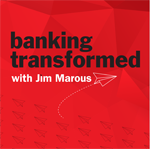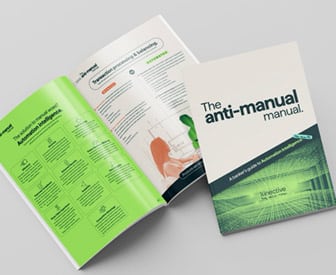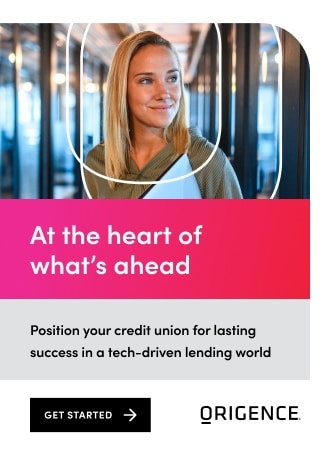In May of this year, Brian Brooks took office as Acting Comptroller of the Currency. When Brooks assumed his position, he mentioned his priorities as supporting responsible innovation, strengthening the federal banking system by enhancing the scope and relevance of the national charter, and ensuring national banks serve their respective communities.
During his relatively short tenure, Brooks has already made statements regarding the importance of branches despite a move to digital, approved the first national charter for a fintech organization, suggested the creation of a federal payments charter, and asked for input of how financial institutions store and transact in cryptocurrency.
It is clear that Brooks has a significantly expanded perspective on the role of the Office of the Comptroller of the Currency (OCC) than his predecessors have had, and is pushing other regulatory agencies to move forward quickly as well. It is also clear that the mission of Brooks and the OCC is far from complete. The pathway to the future has several hurdles, with trade associations not agreeing with several of the changes proposed.
 With fintech and big tech firms continuing to encroach on the turf of legacy financial institutions, there is most likely no option but to rethink how banking is defined and how it is regulated. The industry continues to lose business and customers as more and more households opt to manage their finances using advanced technologies and innovative financial solutions.
With fintech and big tech firms continuing to encroach on the turf of legacy financial institutions, there is most likely no option but to rethink how banking is defined and how it is regulated. The industry continues to lose business and customers as more and more households opt to manage their finances using advanced technologies and innovative financial solutions.
To get an up-to-date perspective on all of these issues, we were fortunate to be granted an exclusive interview with Brian Brooks for the Banking Transformed podcast. Brooks’ background includes roles at One West Bank, on the board at Fannie Mae and as Chief Legal Officer at Coinbase.
Below is an abridged version of the interview.

What has the experience as Acting Comptroller of the Currency been like?
Brooks: Well, I expected a lot less than this, though it’s been everything I always wanted and more. I would say the toughest thing in a moment like this is not to let the urgent overtake the important. There were a series of macro trends going on in finance long before the COVID shutdowns occurred. And if anything, what we’ve learned from COVID is that the change to a more modern financial system has to accelerate if we’re going to serve everybody in this country who needs access to financial services.
It’s all the more urgent in a world where people don’t want to go to a bank branch. They don’t want to touch cash. All of these things accelerate the trend toward technology innovation. But, at the same time, we’re in an environment where banks are under real stress. People are losing jobs. We’re shutting down whole sectors of the economy. People are going bankrupt. So, we have to be able to do more than one thing at a time, but I don’t want to be knocked off the long-term agenda because there’s a short-term emergency. We have to be able to address both the immediate and the long term.
Listen to the entire Brian Brooks podcast
How has the industry done during these unprecedented times?
Brooks: I would say that it’s been fine so far with an asterisk. Banks would tell you earnings are under massive pressure because net interest margin no longer exists. There are loan delinquencies on the horizon. They haven’t all come through the system yet, but if we don’t turn on the economy broadly and soon, we know that a lot of these loan categories are going to be under stress. Without another Cares Act, we don’t open the economy, and we’ll have major recessionary pressures.
Remember, this is a recession of choice. We have decided that it is less risky to turn off the entire economy than it is to endure the pretty unevenly distributed depredations of the coronavirus. So that’s a choice we’ve made, but that choice will become more costly over time … so that’s a problem.
The traditional banks are doing fine. They’re well capitalized. They’re serving their customers. Their loans are being worked out in ways that we would want them to work out. At the same time, it’s really good that we’ve got this tech sector in finance today, because when it came time to roll out the paycheck protection loan program, or various other of these rescue packages, we really needed tech innovators to figure out a way to rapidly reach large numbers of customers.
During this time, the banks needed fintech firms to help them do risk assessments and identity verification checks and other things. And the fintech firms needed the banks as the source of capital through which these dollars were going to flow. A win-win I think.

Redefining CX Through Innovative Social Media Strategies for Financial Services
Learn how Sprinklr is redefining success in the financial sector by harnessing the potential of tailored content and personalized engagement.
Read More about Redefining CX Through Innovative Social Media Strategies for Financial Services

The Power of Localized Marketing in Financial Services
Learn how to enhance your brand’s local visibility, generate more leads, and attract more customers, all while adhering to industry regulations and compliance.
Read More about The Power of Localized Marketing in Financial Services
What new risks are you looking at during the pandemic?
Brooks: At a macro level, we’re very concerned that we continue to have to examine our banks remotely. And so, regardless of whether you’re talking about credit risk or operational risk, cyber risk or something else, it’s always easier to detect problems face to face. Simply having to work from home is a risk to the entire system, and I think is not a sustainable long term strategy.
If you go one level below that, we think about it in terms of individual sector risks that are really standing out to us. For example, on the credit side, there are some industries that are doing just fine and some industries that seem like they are under real threat. Commercial real estate is under pressure, especially if businesses let employees continue to work remotely. If you’re a lender to the hospitality industry or the travel industry, those industries suffer greatly with social distancing.
So we look at those things, and the reserves being taken against those assets, and we see big flashing red lights on the horizon. Then there are subject matter risks, like cyber risk, where criminals and sovereign threats have gone through the roof during this period. I think the cyber criminals know that lots of us are glued to our screens all day today. We’re not in our best decision making framework because of the stress of the pandemic and the shutdowns and everything. And as a result, we’re much more likely to click a link we shouldn’t click or to fall victim to an internet scam.
Believe it or not, I’m inherently an optimist. We’ve shut things down for six months. Hopefully, we’re coming to a place where we’re seeing a reopening trend. If that happens, I think the system will be okay. If not, we’re going to have to rethink risk management.
How does the OCC view the use of artificial intelligence (AI) within banking?
Brooks: I think one of the reasons that AI has not gotten broader adoption is that the regulators haven’t spoken more clearly about what we think the risks and benefits of these kinds of technologies are. On the credit side, my personal philosophy is that AI has two potentially enormous benefits. One is a financial inclusion benefit, the other is a credit risk management benefit. For credit risk management, the most predictive models for credit underwriting only capture around 65% of credit performance, which means that a significant amount of the time we are either making loans that are going to default, but we don’t know it, or we’re denying loans that would have performed, but we don’t know it.
Our current credit models are highly tied to existing credit score methodologies like FICO and others. Those things are super useful. But there’s a significant number of people who don’t have a credit score because those scores are built on certain kinds of data and not everybody generates that data. If you’re the kind of person who pays your rent on time, but you don’t have a mortgage, and you pay your utility bills on time, but you don’t have a credit card, you may be really good at making recurring payment obligations every month and yet you have no credit score because the legacy scoring systems don’t capture that.
What do you view as the role of the OCC within the future banking ecosystem?
Brooks: I come from the viewpoint that governments are not very good at building things. They’re not very good at serving customers. They’re not very good at innovating. They are really good at risk assessing. They’re really good at managing and creating frameworks and setting rules within which people can live their lives and build their businesses.
I don’t want to innovate banking. But I know that people want innovation because I see it in their market choices. There’s a service level, there’s a specialization, there’s a bespoke experience consumers are having and they’re voting with their feet in those directions. So I know that that’s true.
I also know that the investors are giving 15X multiples on big bank stocks, and they’re giving 50X multiples on fintech valuations. That tells me that both investors and consumers are wanting services delivered in a different way. So, my job isn’t to tell them they’re right or wrong, or to tell them this service is better than that service. My job is to say, okay, if that’s where the market’s going, and my mandate is safety, soundness and fairness, how do I ensure that I can continue to preserve safety and soundness, even as these core banking services migrate into fintech platforms?
The best idea I’ve got is I need to rethink the bank charter. I need to be able to offer those companies access to my charter so that I can maintain visibility and serve my function of making sure those activities are safe and sound.
See all of our latest coverage of fintechs.
Why are you considering new charters for non-deposit taking organizations?
Brooks: There’s a lot of business that 10 years ago was done exclusively in banks. We could look at it and supervise it and make sure it was safe. If you went back 15 years, something like 50 or 60% of consumer lending in America happened inside of banks. So the bank regulator (namely me and my predecessors), could look at that activity and make sure that disclosures were given and consumer protections were observed, sound underwriting was occurring and the like.
Then, all of that business started leaking away to specialty platforms that didn’t have bank charters. So, that leads me to think if the only kind of company that I can supervise is a company that takes deposits, and those businesses are leaving the depository universe for the non-depository universe, then we have a choice. We can either reimagine the bank charter and allow me to extend my supervision to those kinds of companies, or we can just take for granted that that risk is going to be outside the supervised system. Shadow banks will now be the most important things in the economy. And in the next financial crisis, you won’t be able to blame me. I think to ask that question is to answer it.
Subscribe to the Banking Transformed Podcast
Should there be more inter-agency cooperation in the future similar to the U.K.?
Brooks: Well, I think there’s a lot to be said for the UK model. And I’ve said before that you can imagine a way of rationalizing our three banking agencies so that instead of all three of us examining different categories of banks and conducting basically similar activities, you can imagine a world where we had one supervision agency and that would be the OCC. We have one deposit insurance and resolution agency that would be the FDIC. And we have one agency that conducts monetary policy, that’d be the Federal Reserve.
So having said that, it would be great if the United States at the top of the house could align around an innovation agenda. The good news is right now, my partners at the Fed and the FDIC are heavily innovation focused. I mean, all of them, I’m the only one who’s actually worked in fintech, but they’re very supportive of it, and so I don’t perceive a big gap.
See more coverage of cryptocurrency.
What role do you see banks playing with cryptocurrencies?
Brooks: Many people are not aware that there are almost 50 million Americans who own crypto. This is not a niche thing … there are as many Americans who own crypto as use Uber. It’s a new thing, but it’s been broadly adopted pretty rapidly.
Having said that, I think that crypto is seen as mysterious because the understanding most people have of it is as an investment asset that is highly volatile. In reality, crypto is about the power of networks versus the power of vertically integrated intermediaries in the delivery of value exchange. So the thinking about Bitcoin is it’s not about the token that the Bitcoin itself that has a transaction value, it’s about the fact that the value of the Bitcoin is based on the value of the underlying network of computers that are simultaneously validating transactions in a transparent way that’s visible and public.
One of the reasons that we’ve come out with our custody letter and our letter about stable coins is that we believe that one way of thinking about these blockchain networks is their payment systems. Value is being transmitted across a network from person A to person B in a way that is actually faster and cheaper than ACH or Swift or any of a number of other payment networks that exist in the world, but it’s fundamentally performing the same function. So if banks are plugging into other payments systems, our belief is that they need to start learning about this payment system and be ready for it when it scales.
So, one reason our first statement on crypto was about custody was because of the idea that there are millions of Americans who are holding this stuff and the safest custodians for any given asset are national banks. And yet we had not authorized national banks to perform that role before. We’ve also authorized them to hold gold bullion and fine wines and antique art and things like that, but at some level this asset needs to be in custody, and that’s an important consumer protection we can offer.
It’s also a matter of international competitiveness. Other countries are focused on blockchain and stable coin and central bank digital currencies as a way of competing with the dollar. My view is if we do not start allowing dollars and other financial assets to travel on blockchains, to take advantage of the programability features of some of these technologies, then eventually the dollar will not be able to compete in the world with other countries’ currencies.

Where do you see the banking industry in the next 24 months?
Brooks: My belief is that there are three kinds of institutions that will be affected in three different ways. First, the big money center banks are not going to look that different 10 years from now than they look today. They’ll offer services in a slightly different way. Their mobile apps will be a little bit better, but at the end of the day, if you have global scale in terms of velocity of money, you’re always going to be a central player. Money center banks will always have a role in the world and it’ll look a lot like their role today in terms of broad risk intermediation for the global economy.
Secondly, I think community banks will do better in the next 10 years because they will always be the trust providers in their local communities. I think the world will be better for them because I think we will have solved some problems that make it hard for them to adopt better technology, to serve their customers a little bit faster. We’ll solve some of their problems with core processors, with third party risk management and the like, but they’ll play their same key role … but I think they’ll be more profitable and more successful.
The category of banks that I worry about a little bit are the banks in the middle of that. The regional banks that are not quite big enough to really have scale, but they’re certainly not small enough to have the undying loyalty of their local neighborhoods where they are. These are banks that have $150 billion of assets, but not $600 billion of assets. These companies are going to ultimately sort of skinny down their suite of services to focus on what they’re best at and they’ll outsource a lot of other things.
What you’d expect in those cases would be spinoffs of business lines, sales of business units and a focus on the core. I also think those are the banks that are going to have the hardest work to do to make sure that they’re only doing value add services and not doing commoditized services.
One other thing I worry about in a more picayune way is that we will continue to see leakage out of the banking system and these institutions that are the best suited to manage risk and intermediate transactions will no longer play the central role they have played. As leakage continues, there will be no coherent supervision. That’s why it is so important for me to win the litigation over fintech charters, because if I don’t win it, it’s bad for the country.







